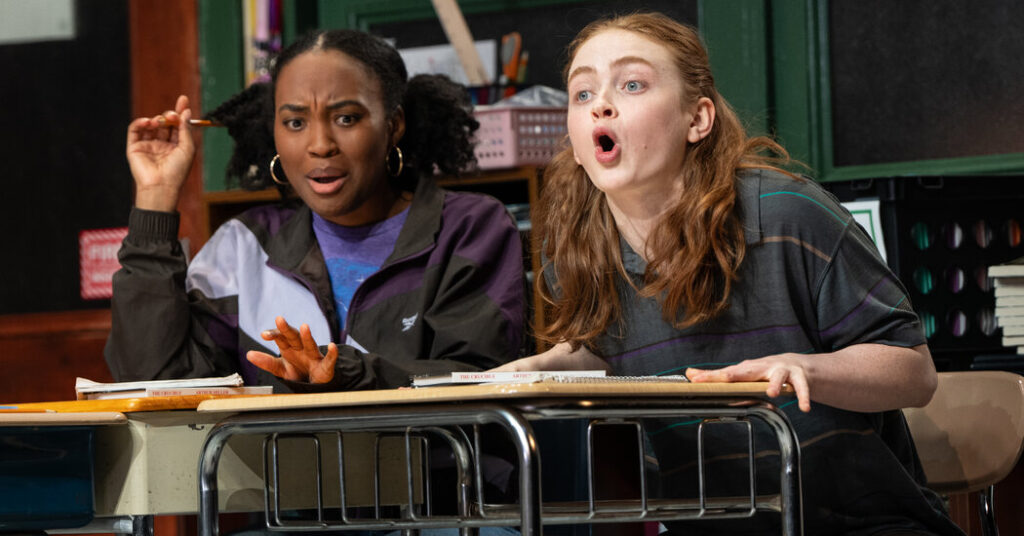Yet “John Proctor” is not an anti-“Crucible” tract. (Substantial excerpts from “The Crucible” have been authorized by the Arthur Miller trust.) Though Belflower argues, straightforwardly and successfully, that the older play fails to take seriously the misogyny behind the witch hunts, she essentially admits its dramaturgical power, in part by imitation. Her own characters and situations take more than a page from Miller’s. She borrows but reframes the idea of a crucible as the kind of hothouse you might find in any high school. And in ways that feel perfectly natural, her girls fall into paroxysms of laughter, screaming and wild dance that, if viewed unsympathetically, could well look like witchiness.
Taymor’s production is entirely sympathetic — to the characters and to the text. Though thrilling in its refusal to tamp down the show’s sometimes anarchic spirit, it does not ignore the dangers of abandon. Sink’s Shelby is beautifully positioned just at the spot where you can’t tell the difference between impulse and illness. The other girls stratify at in-between altitudes, from Scott’s firmly grounded Nell to Strazza’s high-pitched Beth.
But the overall tone, expressed by Natasha Katz’s convulsive lighting of the classroom set by Teresa L. Williams (working with the AMP collective), embraces the extremes. The disturbing sound design and original music, by Palmer Hefferan, are especially vivid. At the play’s climax, when Shelby and Raelynn present their “junior honors lit interpretive project” — dressed in homemade versions of Salem garb (costumes by Sarah Laux) — all of Belflower’s touchstones, and Taymor’s skill at choreographing emotion, come together in a wild scene that restores to the girls the power taken from them.
You could argue, I suppose, that the tight twisting of themes — Lorde, in “Green Light” mode, turns out to be the point-for-point antidote to Proctor — is a bit overdetermined. The girls are universally wonderful; the male characters, except for the dim boy, who gets a small shot at redemption, not. The script sticks relentlessly to its topic, a common enough trait of early work. (This is Belflower’s New York debut.) One of the features of “The Crucible” it ignores is how Miller’s play succeeds as allegory because it is porous: It is about many things.
No matter. “John Proctor Is the Villain” is too urgently necessary about its one thing to make it worth wishing it were even a little different. That the urgency comes in an often hilarious, often ecstatic, highly accessible package is all the better. I hope a lot of high school girls — and boys — see it. Both need to understand that the case against John Proctor is just beginning.
John Proctor Is the Villain
Through July 6 at the Booth Theater, Manhattan; johnproctoristhevillain.com. Running time: 1 hour 45 minutes.



